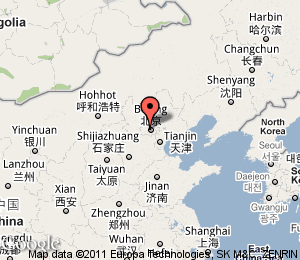Chinese panic-buy salt over Japan nuclear threatWorried shoppers stripped stores of salt in Beijing, Shanghai and other parts of China on Thursday in the false belief it can guard against radiation exposure, even though any fallout from a crippled Japanese nuclear power plant is unlikely to reach the country. The panic-shopping was triggered by rumours that iodised salt could help ward off radiation poisoning – part of the swirl of misinformation crisscrossing the region amid Japan's nuclear emergency. Text messages on mobile phones have circulated about nuclear plumes spreading throughout Asia. Rumours also spread that salt was adequate protection for radiation sickness. Supermarkets in the capital of Beijing and many cities across the country have run out of salt as a wave of panic-buying spread across provinces from eastern Zhejiang to southern Guangdong to western Sichuan. Prices of salt jumped five or 10-fold in southern Guangdong, sina.com reported. In Shanghai, Dong Linhua, a 57-year-old factory worker, said he wanted to buy just 1kg (2.2lbs) of salt but could not even find that. "Salt is not available in any of the shops," he said. Though Dong said he didn't believe the rumours, he wanted to have the salt for his family. On Thursday, the country's largest salt maker, China National Salt Industry Corp, issued a statement saying ample reserves were in place and that "panic-buying and hoarding is unnecessary", according to the official Xinhua news agency. The ministry of health posted information on its website telling people that taking regular table salt would not prevent radiation. An adult would need to ingest 3kg of salt at one time to help prevent radiation, the ministry said. Potassium iodide pills are used to help mitigate the effects of radiation poisoning, but regular table salt does not contain enough iodine to block the poisoning, according to health experts. A foreign ministry spokeswoman, Jiang Yu, said: "I do not see any necessity to panic." The national development and reform commission issued an urgent notice ordering local authorities to take "immediate action to monitor the market prices and resolutely crack down on illegal acts including spreading rumours to deceive the public". The Guangdong and Hainan provincial governments warned of fines of up to 2 million yuan (£188,000) for companies that sharply increased salt prices. The head of the World Health Organisation in China called on governments and individuals to "take steps to halt these rumours, which are harmful to public morale". Michael O'Leary said the organisation "would like to assure governments and members of the public that there is no evidence at this time of any significant international spread from the nuclear site". The US embassy said there was no evidence that events in Japan "will have any health impact on individuals residing in China". Rumours also impacted other countries. In Vietnam this week, schools kept students indoors, while some employers allowed staff to leave early to avoid rainfall after word spread that the deluge would burn skin and cause cancer. A similar scare in the Philippine capital, Manila, led a university to cancel classes on Monday. |
ADVERTISEMENT
NEWS MAP
 Beijing on the map
Beijing on the map
TOP NEWS
ADVERTISEMENT
|
What's the China Play? |
Japan nuclear crisis rattles financial markets |
China at risk of Japan radiation, expert warns |
China Media Shares Halted Since Friday |
Impact on World Economies |


